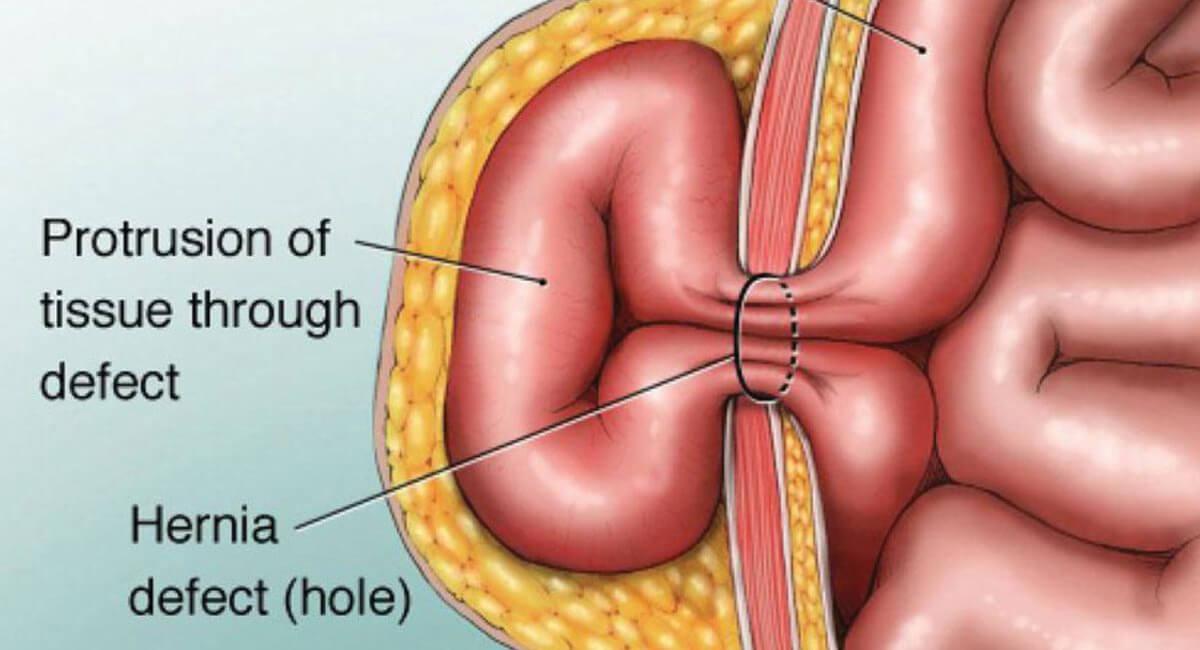
Introduction
An inguinal hernia is a medical condition caused when a small piece of tissue, such as a portion of the small intestine, enters the inguinal canal. Smiles Gastroenterology is the best hernia hospital in Bangalore with highly skilled doctors on the team. The inguinal canal is a tubular pathway through the abdominal wall’s bottom layer, located in the groin area. It carries many nerves and blood vessels. The inguinal canal is home to a man’s spermatic cord. In women, the inguinal canal includes a ligament that serves to secure the uterus in place.
Request an Appointment at Smiles
What Are the Symptoms of Hernia?
- ● Heaviness, pressure, and weakness in the groin area
- ● Bulging and pain in the groin area
- ● Swelling in the groin area
What Causes Hernia?
- ● Hereditary causes
- ● Pregnancy
- ● Chronic cough
- ● Premature birth
- ● Chronic constipation
- ● Obesity
How is Hernia Diagnosed?
- ● A specialist will usually detect an inguinal hernia during a physical examination. They will ask you to cough while standing during the test to check the hernia where it is more visible.
- ● If your doctor at Smiles Hospital, Bangalore, doesn’t see any swelling in the groin area, they may recommend imaging tests, like an abdominal ultrasound, CT scan, or MRI.
- ● The specialist doctor should be able to efficiently and quickly force an inguinal hernia back into your abdomen, as it is reducible when you lay flat on your back. You can, however, have an incarcerated or strangulated inguinal hernia if this is ineffective.
How is Hernia Treated?
In most cases, outpatient surgery is performed. Recovery time varies based on the hernia size, the method used, and the patient’s age and health. The following are the two types of surgery carried out at Smiles Hospital for a hernia:
- ● Open hernia repair – Inguinal hernia repair is done by putting the patient under general or local anaesthesia. Then, the surgeon moves the herniated tissue back into shape by making an incision in the abdomen and repairing the opening with stitches. In some instances, a thin piece of synthetic mesh is used to protect the region from another hernia.
- ● Laparoscopy – Smiles Hospital, Bangalore is the best laparoscopic surgery Hospital in Bangalore and laparoscopic surgery is carried out to treat a hernia depending on the case. After administering general or local anaesthesia, the surgeon will make several minor incisions in the lower abdomen and install a laparoscope (a narrow tube with a small film camera fixed to one end). The camera sends an enlarged image of the inside of the body to a monitor. This provides a close-up view of the hernia and underlying tissues. Watching the monitor, the surgeon will carefully fix the hernia using a synthetic mesh. For laparoscopic hernia surgery in Bangalore consult an expert doctor at Smiles Gastroenterology.
What is the Result of Hernia Treatment?
- ● After laparoscopic hernia surgery in Bangalore at Smiles Gastroenterology, you may experience stomach pain and may need pain relief. Intensive exercise and heavy lifting should be avoided for a few weeks.
- ● The specialist should discuss with the patient whether they can return to work safely. Infants and children may also feel some pain, but they can typically go back to daily activities with ease after recovery.
Are there any risks of surgery in Hernia?
- ● A surgery for fixing an inguinal hernia is generally safe, but older people and those with medical conditions such as diabetes, asthma, and cardiac problems may face some complications.
- ● There is also a risk of developing an infection after surgery, and the patient may experience fever, incision discharge, and inflammation, redness, or tenderness around the incision. Postoperative infection can be treated with antibiotics. But sometimes, another procedure with local anesthesia may be required to drain the infection.
- ● The risk of complications such as blood clots and pneumonia by getting out of bed soon after surgery can be prevented by resuming movement as allowed by the doctor.
- ● A hernia may resurface after several years. The most frequent risk with inguinal hernia repair is a recurrence, which will require patients to undergo a second surgery.
- ● Surgery is required because an inguinal hernia cannot get resolved on its own. Until it is fixed, it is likely to become bigger and cause increased pain. Bowel obstruction or strangulation may be caused by hernias that are not fixed. In such conditions, a good portion of the intestine collapses when blood circulation is blocked.
Request an Appointment at Smiles
FAQ's
What if I have other Health Problems?
How Long does it take to Recover?
When can I Resume Physical Activities and Sports?
Who can Develop an Inguinal Hernia?
What is Minimally Invasive Hernia Surgery?
How are Large and Complicated Inguinal Hernias Treated?
Need Help?
For any Information about our Locations, Doctors or Treatments.
